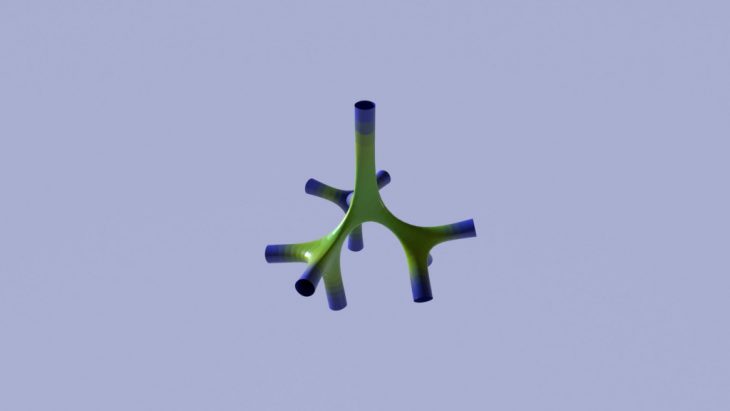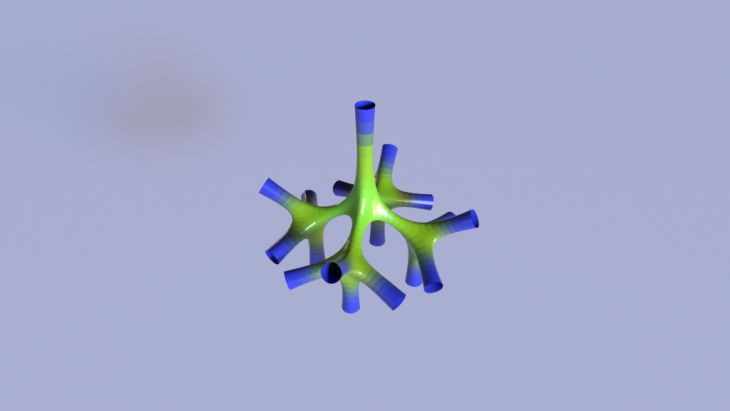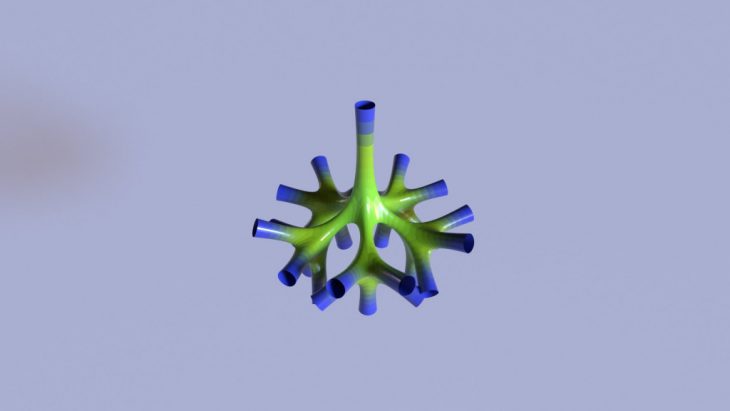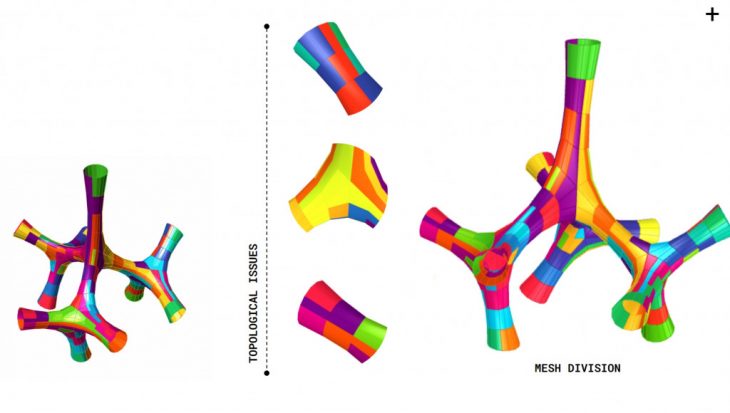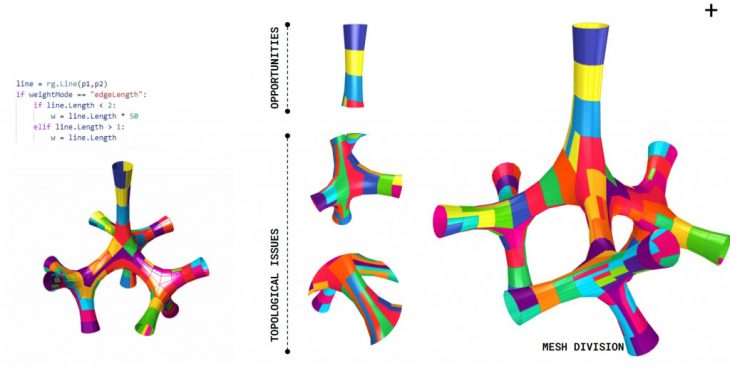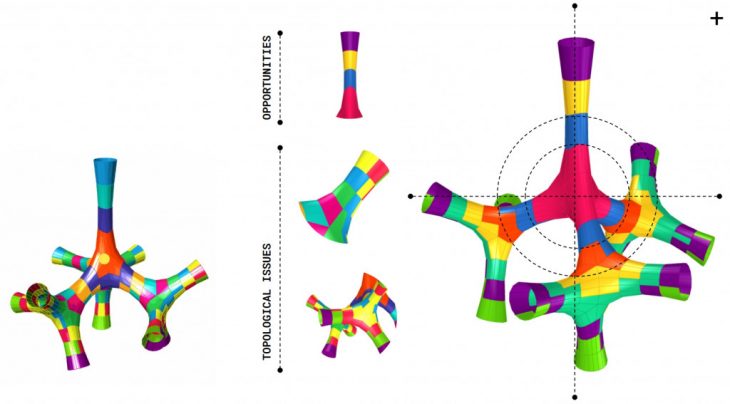+ ABSTRACT
Blaze is a ceiling lighting unit generated using L systems and branching processes. In this project, we are exploring different techniques for topological optimization and digital fabrication using machine learning. We are using a set of tools that include NetworkX Python library, Visual studio, K_means clustering, and Hops.

Lighting Unit Diagram
+ MESH TYPOLOGY
First, we are generating simple quad mesh faces using Grasshopper, and then we used Kangaroo for mesh relaxation to keep a clean mesh typology with even valence vertices.
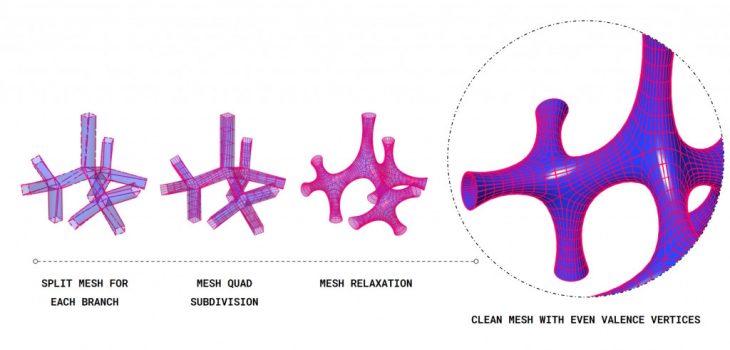
Mesh relaxation process
+ MESH GROWTH
We are using Anemone to generate L systems geometry where we can have control over the geometry of the lighting unit, how many lighting branches, and branches length. That’s allowing us to have different iterations of the same lighting unit for different uses.
- Three Branches Growth
- Four Branches Growth
- Five Branches Growth
+ TYPOLOGICAL OPTIMIZATION
In order to optimize the geometry for digital fabrication, we explored different methods using NetworkX python library and K_means clustering. These methods were written in visual studio as a python code, and we used Hops component to bring this code inside Grasshopper3D to strip the mesh.
- SHORTESTPATH EDGE LENGTH
- SHORTESTPATH SAME WEIGHT
- K-MEANS CLUSTERING CENTER POINT
+ MESH STRIPPING
The Final method generated by K_means clustering method based on the distance between the original branching lines, Z values, and mesh faces.
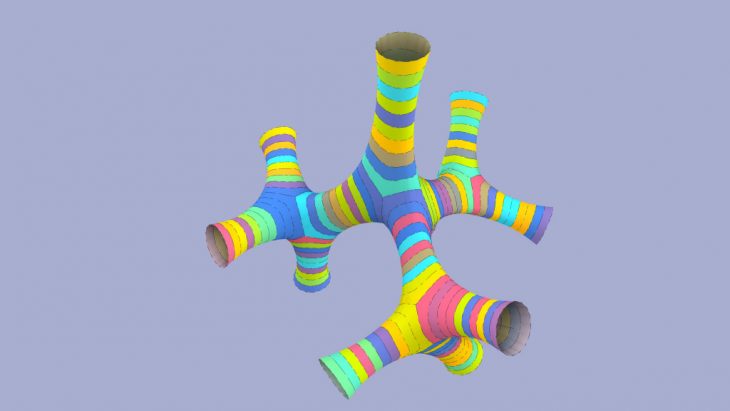
Mesh stripping using K_means clustering
+ DESIGN PROCESS
+ CREDITS
BLAZE is a project of IAAC, Institute for Advanced Architecture of Catalonia developed in the Master in Advanced Computation for Architecture & Design in 2020/21 by Hesham Shawqy and German Otto Bodenbender. Faculty: David Andres Leon and Dai Kandeel.
